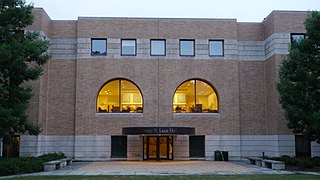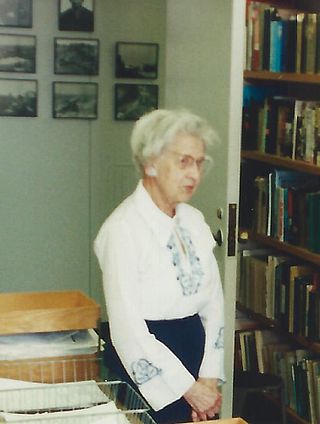Related Research Articles

A think tank, or policy institute, is a research institute that performs research and advocacy concerning topics such as social policy, political strategy, economics, military, technology, and culture. Most think tanks are non-governmental organizations, but some are semi-autonomous agencies within government or are associated with particular political parties, businesses or the military. Think-tank funding often includes a combination of donations from very wealthy people and those not so wealthy, with many also accepting government grants.

The Princeton School of Public and International Affairs is a professional public policy school at Princeton University. The school provides an array of comprehensive coursework in the fields of international development, foreign policy, science and technology, and economics and finance through its undergraduate (AB) degrees, graduate Master of Public Affairs (MPA), Master of Public Policy (MPP), and PhD degrees.
Aaron Louis Friedberg is an American political scientist. He served from 2003 to 2005 in the office of the Vice President of the United States as deputy assistant for national-security affairs and director of policy planning.

Dani Rodrik is a Turkish economist and Ford Foundation Professor of International Political Economy at the John F. Kennedy School of Government at Harvard University. He was formerly the Albert O. Hirschman Professor of the Social Sciences at the Institute for Advanced Study in Princeton, New Jersey. He has published widely in the areas of international economics, economic development, and political economy. The question of what constitutes good economic policy and why some governments are more successful than others at adopting it is at the center of his research. His works include Economics Rules: The Rights and Wrongs of the Dismal Science and The Globalization Paradox: Democracy and the Future of the World Economy. He is also joint editor-in-chief of the academic journal Global Policy.

Harold Tafler Shapiro is an economist and university administrator. He is currently a professor of economics and public affairs at the Princeton School of Public and International Affairs at Princeton University. Shapiro served as the president of University of Michigan from 1980 to 1988 and as the president of Princeton University from 1988 to 2001.

Marina von Neumann Whitman is an American economist, writer and former automobile executive. She is a professor of business administration and public policy at the University of Michigan's Ross School of Business as well as The Gerald R. Ford School of Public Policy.

A public policy school is typically a university program that teaches students policy analysis, program evaluation, policy studies, public policy, political economy, urban planning, public administration, international relations, security studies, nonprofit studies-nonprofit management, political science, urban studies, intelligence studies, global studies, emergency management, public affairs and/or public management. Public policy schools typically train students in two streams. The more practical stream treats the master's degree as a terminal degree, which trains students to work as policy analysts or practitioners in governments, government relations, think tanks, and consulting firms. A more theoretical stream aims to train students who are aiming to go on to complete doctoral studies, with the goal of becoming professors of public policy, political science in general, or researchers.
The S. Rajaratnam School of International Studies (RSIS) is an autonomous graduate school in Singapore, and policy-oriented think tank within the Nanyang Technological University (NTU). Founded in 1996 as the Institute of Defence and Strategic Studies, RSIS offers graduate education in international affairs, taught by an array of international faculty. The school is named after former Deputy Prime Minister S. Rajaratnam.

The Graduate Institute of International and Development Studies, or the Geneva Graduate Institute, abbreviated IHEID, is a government-accredited postgraduate institution of higher education located in Geneva, Switzerland.

The Whitney and Betty MacMillan Center for International and Area Studies at Yale, commonly known as the MacMillan Center, is a research and educational center for international affairs and area studies at Yale University. It is named after Whitney MacMillan and his wife Betty.

The Center for Strategic Studies under the president of the Republic of Azerbaijan (SAM) is Azerbaijan’s first governmental, non-profit think tank founded on November 12, 2007, by the decree of the president, Ilham Aliyev. Its headquarters is in Baku, Azerbaijan. In February 2008, by the decree of the president of the Republic of Azerbaijan, Elkhan Nuriyev was appointed director of the Center for Strategic Studies, known by the acronym SAM in Azerbaijani language.

Michael Robert Auslin is an American writer, policy analyst, historian, and scholar of Asia. He is currently the Payson J. Treat Distinguished Research Fellow in Contemporary Asia at the Hoover Institution, Stanford University, a Senior Fellow in the Asia and National Security Programs at the Foreign Policy Research Institute, and a senior fellow at London's Policy Exchange. He was formerly an associate professor at Yale University and a resident scholar and director of Japanese studies at the American Enterprise Institute, a conservative think tank in Washington, D.C.
The Center of International Studies (CIS) was a research center that was part of Princeton University's Woodrow Wilson School of Public and International Affairs in Princeton, New Jersey. It was founded in 1951 by six scholars who came to Princeton from Yale Institute of International Studies under the leadership of the center's first director, Frederick S. Dunn. By 1999, its stated mission was to "promote world peace and mutual understanding among nations by supporting scholarship in international relations and national development" and to "support analysis of abiding questions in international security and political economy". In 2003, the center was merged with the university's regional studies programs to form the considerably larger Princeton Institute for International and Regional Studies.

Annette May Baker Fox was an American international relations scholar, who spent much of her career at Columbia University's Institute of War and Peace Studies. She was a pioneer in the academic study of small powers and middle powers and the books and articles she wrote on that subject are highly regarded in the field. She was director of the institute's Canadian Studies Program from 1977 to 1984.
The Princeton Institute for International and Regional Studies (PIIRS) is the main research center for international studies and area studies at Princeton University and is one of the oldest centers of its kind in the United States. The Institute focuses on an interdisciplinary approach and its associated faculty is drawn from more than 150 professors and other scholars from more than 25 different departments within Princeton. Its director is political scientist Deborah J. Yashar, the Donald E. Stokes Professor of Public and International Affairs.

Arnold Oscar Wolfers was a Swiss-American lawyer, economist, historian, and international relations scholar, most known for his work at Yale University and for being a pioneer of classical international relations realism.
Sarah E. Mendelson is an American diplomat and served as United States Ambassador to the United Nations Economic and Social Council. Mendelson was confirmed by the Senate on October 8, 2015, and sworn into her post on October 15, 2015. Mendelson was recently named Distinguished Service Professor and head of Carnegie Mellon University Heinz College's program in Washington, D.C.
The Yale Institute of International Studies was a research institute that was part of Yale University in New Haven, Connecticut. It was founded in 1935 and was led by directors Nicholas J. Spykman and later Frederick S. Dunn, under whom there was also an associate director, William T. R. Fox. The institute was influential in the development of international relations theory; in particular, it was considered a bastion of international relations realism. The institute came to an end in 1951 due to a conflict with the university administration. Dunn and five of his colleagues left Yale and formed a successor organization, the Center of International Studies, at Princeton University that same year.
Frederick Sherwood Dunn was an American scholar of international law and international relations. After working as a legal officer at the U.S. Department of State, he went into academia and taught at Johns Hopkins University, Yale University, and Princeton University, publishing several books during his career. He served as a founder and a director of both Yale's Institute of International Studies and the Center of International Studies at Princeton. He founded the journal World Politics and was chairman of its editorial board until 1961.
References
- ↑ "MacMillan Center expands commitment to graduate education with conference travel grants". Yale MacMillan Center.
- ↑ "History". Yale MacMillan Center. 20 May 2015.
- ↑ "International Studies, The Center of". A Princeton Companion.